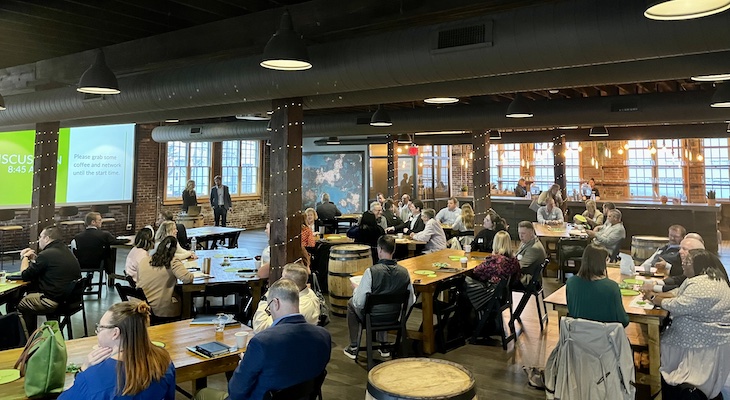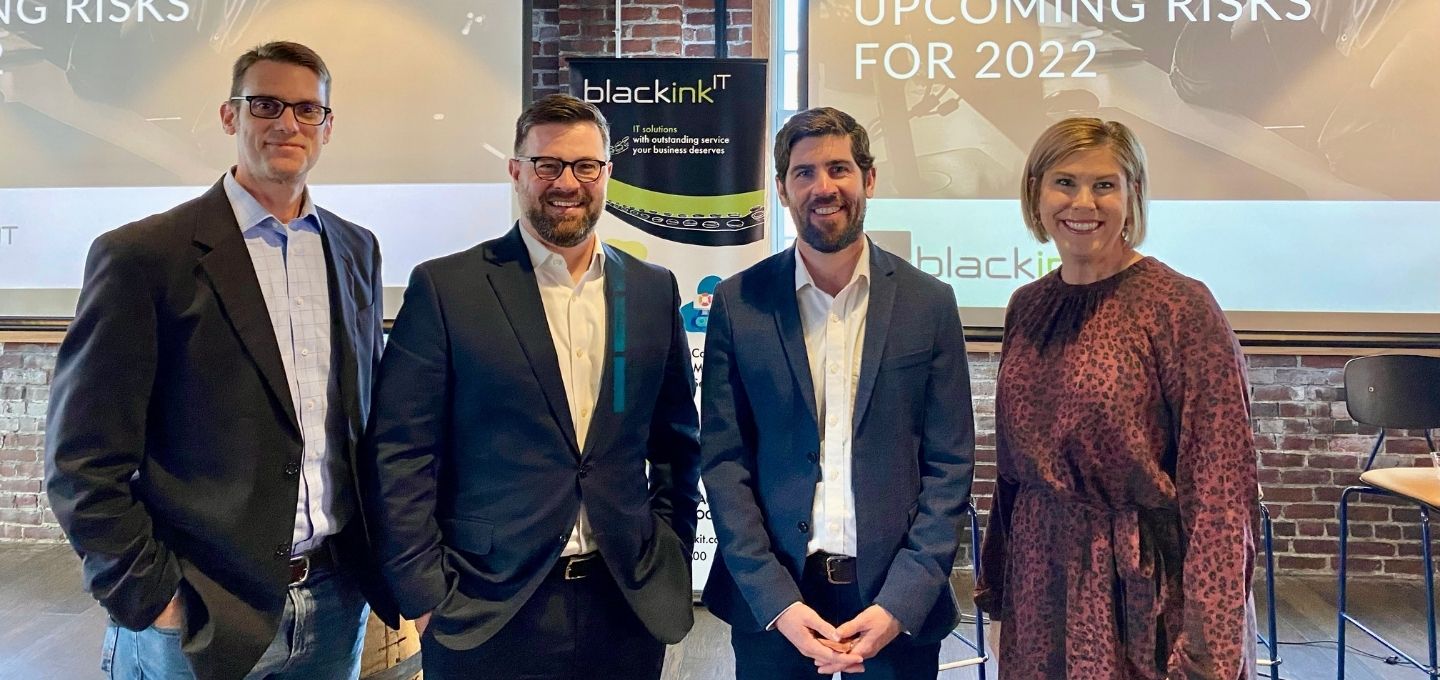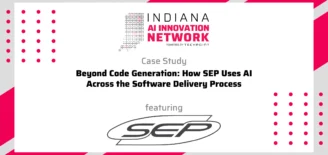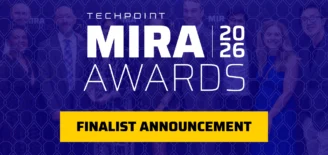Preparing for Upcoming Risk: “It’s No Longer Optional”
Missed out on the PEST Analysis Approach Event? Below are a few highlights to spark important conversations at your organization.
What is the PEST Analysis?
In 2022, there are increasing risks that your organization should be proactively addressing. Many of these risks evolved throughout the pandemic. Frameworks such as the PEST Analysis (political, economic, social and technological) allow businesses to manage their external factors that influence operations. By doing so, they can become more competitive in the market and build sustainable long-term strategies.
On March 15th, Blackink IT held a PEST Analysis Approach Event with speakers covering personnel, economics, cybersecurity, and legislative updates that are top of mind for business leaders. Below, learn from Heather Haas, president of ADVISA; Conor McGuinness, partner at Heartland Ventures; an FBI Agent; and Brian McGinnis, data and privacy partner at Barnes and Thornburg, LLP; on upcoming risks and where to begin.

PERSONNEL
We’ve all heard the news: the labor market is undergoing the “Great Resignation.” Now, attracting and retaining employees has become more difficult than ever, with potential candidates having their choice at top companies.
Haas shares advice on how to retain employees, starting with asking the most difficult question: “Leaders have to keep it simple and just ask the question, ‘How do you feel about working here?’ Asking the question isn’t the hard thing, I think the hard thing to prepare for is how to listen, not solve. You really need to hear what they have to say and consider it. And then, start to take action in ways that make sense.”
Leaders must be trained and ready to have these conversations to address the issues upfront, rather than in an exit interview. At their core, leaders should be “Culture Carriers” of their organization. By this, Haas means, “The leaders of your organization, in addition to the tasks and work they produce, should inspire people to do their best and connect, build trust and shared purpose, and activate the core values of the organization.” When you prioritize a strong culture, you will be where the best and brightest want to work.
ECONOMICS
While the labor market is one area to take note of, the venture capital market is another. McGuinness understands how to entice organizations to make the move to the Midwest, and to Indiana in particular. Among the latest risks with inflation, COVID, supply chain, rising interest rates, and more, it is a challenging market to navigate. When asked what Indiana is doing well to gain new businesses, he explains, “I would say the state is doing a lot of great things to attract businesses. Among them, there’s a friendly tax and regulatory climate. That is what you hear most often. But I think there are other things they could be doing well, like leveraging the state’s legacy in business, involving manufacturing, life sciences, etc. Using the Eli Lilly story, along with others, to attract emerging technologies and businesses in that space, will be important as we move away from the friendly tax and regulatory climate narrative.”
For organizations in Indiana, investing in the surrounding area will be vital to retain younger generations. Conor expresses, “Giving folks a reason to not just work here but to live here.”
CYBERSECURITY
Over the last few years, cybersecurity has become a rising concern for organizations both big and small. Today, the impact of foreign powers only escalates fear, especially for those without a security infrastructure in place.
On the panel, the FBI Agent who represents a few cities in the Midwest and has served on global assignments, shared his latest observations. “The Russia-Ukraine conflict is surprising as we would have anticipated more cyber-attacks than we currently have seen. Still, there remains a deep concern for increasing security protection in organizations, both domestically and abroad.” There is a lack of proactive measures being taken to prevent attacks, as well as understanding where to report once your organization is attacked. “Our goal is to educate the public on what to do when you are attacked. There must be communication with the FBI to understand the threat and mitigate it moving forward.”
DATA SECURITY AND PRIVACY
Data security and privacy legislation have rapidly evolved over the course of the pandemic. Many businesses are just beginning to adapt their data security and collection habits – recognizing the severity of falling behind. If you have avoided the compliance conversation to date – McGinnis explains it is “no longer optional.” Businesses will need to start meeting compliance standards of individual state laws and anticipate federal legislation. Some important questions to ask your organization are:
- What data do we have?
- How do we plan to continue collecting information?
- How are we processing it?
- Who are we sharing it with and how are they protecting it?
Most organizations are not 100% compliant with all laws, nor will they achieve this standard. However, new legislation proves a need to start these conversations. One of the best ways to stay compliant is to be informed. Senate Bill 358 regarding consumer data protection would plan to establish a new article in the Indiana Code. This bill seeks to empower the consumer to understand how an entity is processing their personal data and allows the Attorney General to investigate suspected or actual violations of the new article, similar to new laws in Virginia and California. While it did not pass this session, the bill demonstrates privacy is a priority for lawmakers in Indiana.
If you are interested in continuing these conversations, Blackink IT will be hosting more events in the future around optimizing your business strategy. Stay up to date by following our social media platforms and by visiting our website at blackinkit.com.



